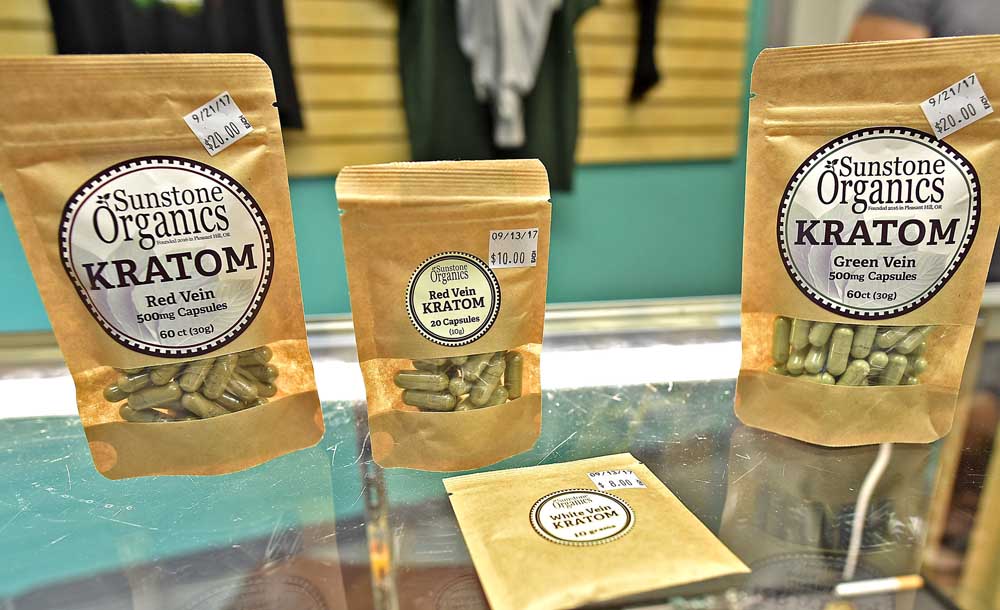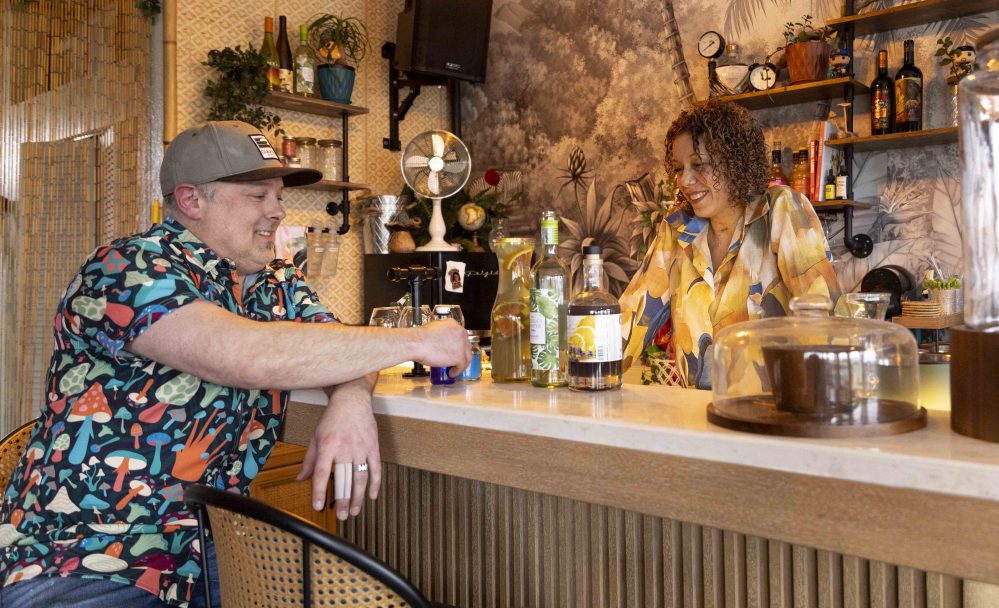Kratom: Legal and booming
Published 6:30 am Friday, July 28, 2017

- Kratom is being sold in some local dispensaries and is being marketed as a way to increase energy and boost productivity.
In large doses, the pills can mimic the effects of opiates. In small ones, and depending on the strain, the drug can be similar to coffee or ibuprofen.
Kratom, a natural product originating from a coffee plant in Southeast Asia, is being sold at marijuana dispensaries, convenience stores and smoke shops across Clatsop County. Southeast Asians have consumed the plant for hundreds of years, but it has only become popular in the United States over the past couple of years.
Medicinal users have pointed to the lack of prescription drug availability as a reason for the spike. Recreational users have touted it as an alternative to more powerful opiates.
Widespread backlash forced the U.S. Drug Enforcement Agency to reverse its decision last year to list kratom as a Schedule I drug, like heroin and LSD, meaning its possession and consumption would have been illegal.
“I was really excited when I found out we were going to sell it,” said Taylor Florance, who works at Nature’s Choice Alternative Medicine marijuana dispensary on Marine Drive and sometimes consumes kratom himself. “There was, at first, a lot of skepticism about it, but there was no actual research done proving anything.”
Along with kratom’s rise in public consciousness came a jump in calls to poison control centers in relation to the drug, from 26 in 2010 to 263 in 2015, according to the federal Centers for Disease Control and Prevention.
Florance said first-time kratom users sometimes consume the pills in higher doses than what is typically recommended, which may explain the rise in CDC calls.
In 2014, Portland resident Susan Ash founded the American Kratom Association to promote and lobby on behalf of those who consume the drug. The organization jumped into its first major battle last year when the DEA announced it would list kratom as a Schedule I drug. The DEA cited 15 deaths linked to kratom, though only one instance likely was a direct result of consumption.
The DEA argued in a posting to the Federal Register that the classification was “necessary to avoid an imminent hazard to the public safety.” But public backlash was swift and widespread.
A petition to stop the scheduling attracted hundreds of thousands of signatures. A group of scientists wrote a letter in opposition to the ban, as did nine U.S. senators — including U.S. Sen. Ron Wyden, D-Oregon — and 51 U.S. representatives — including U.S. Rep. Suzanne Bonamici, D-Oregon.
Anita Baldwin, who works at the Clatskanie Smoke Shop, was told by doctors in May 2016 she had a neuroendocrine tumor. Most commonly located in the intestines, the cancer can lead to symptoms such as diarrhea, wheezing and abdominal cramping.
Baldwin said she would regularly wake up in the middle of the night and need to use the restroom for three to four hours at a time. The constant pain and lack of sleep caused high anxiety, leading her to take five to six decreasingly effective Vicodin pills a day.
“I can’t explain what I was going through,” Baldwin said.
Baldwin started working at the smoke shop in October. Shortly after, a customer walked into the store and told her about kratom.
Willing to try any remedy, she sampled the drug but was unimpressed. She did not feel any of the effects she had heard about because she mixed it with the Vicodin she had already ingested.
But after continued use without the Vicodin, Baldwin said she became much more perky and the pain subsided dramatically. An oncologist even told her after a test to keep doing whatever she was recently doing to relieve pain.
“It’s completely changed my life,” Baldwin said.
At Baldwin’s urging, the smoke shop began selling kratom three months ago. Since then, daily sales at the shop have more than doubled, Baldwin said.
“As soon as people heard we were selling this product, they came flocking to the store,” she said. “I was completely blown away.
Baldwin said she soon will switch jobs to work for a kratom distributor in the Portland metro area.
Warrenton Police Chief Mathew Workman said he was concerned about the abuse of kratom, but he acknowledged that stores have the legal ability to sell the product.
“The problem is people are also using it as a recreational drug and not in proper amounts,” he said. “People get a false sense of security by thinking, ‘If it’s natural, how can it hurt you?’”
Earlier this year, the police chief sent an officer to a local convenience store that sells kratom to ensure the owner was aware of the department’s concerns. The owner had a surprising response.
“He told us he’d go out of business if he stopped selling it,” Workman said. “There’s a lot of things I’d rather convenience stores not sell.”
Clatsop County District Attorney Josh Marquis said the plant is considered a drug by law enforcement. Like being under the influence of Benadryl or a high-caffeine drink, drivers can be charged with driving under the influence of intoxicants if it is determined that kratom affected their abilities to operate a vehicle.
Marquis noted at least one ongoing case in Clatsop County in which someone has been charged with a DUII after consuming kratom.
Earlier this year, the state Legislature began a process that could place Oregon alongside a handful of states that have banned possession or consumption of the plant.
A state Senate bill would direct the state Board of Pharmacy to study whether or not kratom should be scheduled as a controlled substance. The bill was still being examined by the Senate Committee on Judiciary when the Legislature adjourned earlier this month.
For the time being, though, kratom sales are booming.
“I’ll be surprised if it stays that way,” Marquis said. “There will probably be some pushback on it.”





